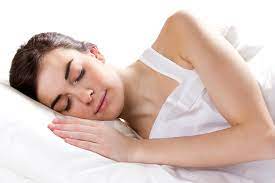Dispelling 5 Myths About Getting a Good Night’s Sleep in Honor of World Sleep Day 2024
A worldwide initiative to highlight the value of getting enough sleep is called World Sleep Day. But getting a decent night’s sleep sometimes seems impossible because of social expectations and hectic schedules. Furthermore, a lot of persistent illusions about sleep exist, which makes it even more difficult to develop sound sleeping practices. Let’s dispel five widespread misconceptions and clarify the reality of getting a good night’s sleep in honor of World Sleep Day.

Myth 1: Using a smartphone or watching TV before bed helps you relax
It’s a common misconception that the blue light produced by screens doesn’t affect your body’s ability to produce melatonin, the hormone that controls sleep-wake cycles. Before bed, screen usage might make it harder for you to fall asleep and lower the overall quality of your sleep. Rather, choose soothing pursuits like reading a book or doing relaxation exercises.
Myth 2: It’s safe to sleep with a light on.
There is a widespread belief that using a nightlight or sleeping with a lamp on is safe. On the other hand, exposure to artificial light—particularly blue or white light—may interfere with the body’s normal melatonin synthesis, which can impair sleep quality and make it more difficult to fall asleep. Make sure there are no artificial lights or dark sources in your bedroom in order to create the best possible sleeping environment.
Myth 3: Taking naps compensates for sleep deprivation at night
Even though naps might temporarily improve performance and alertness, they cannot make up for insufficient sleep at night. Furthermore, taking too many or too lengthy naps throughout the day might throw off your sleep-wake cycle and make it difficult for you to fall asleep at night. To achieve maximum health and well-being, emphasize establishing a regular bedtime pattern and strive for enough nightly sleep rather than depending on naps to make up for missed sleep.
Myth 4: Drinking makes it easier to fall asleep
Alcohol may cause fragmented and less restorative sleep by interfering with the later phases of sleep, even if it initially makes you feel sleepy. Alcohol also has a diuretic effect, which makes it more likely that you’ll wake up in the middle of the night to use the restroom. Limit alcohol intake to promote a more peaceful night’s sleep, particularly in the hours before bed.
Myth 5: The individual who is snoring is the only one who is affected.
Although snoring is sometimes written off as a harmless irritation, it may indicate underlying sleep problems such as obstructive sleep apnea (OSA), which carries significant health concerns such as heart disease, stroke, and hypertension. For an assessment and possible treatment options, speak with a medical expert if you or your spouse snores often.







